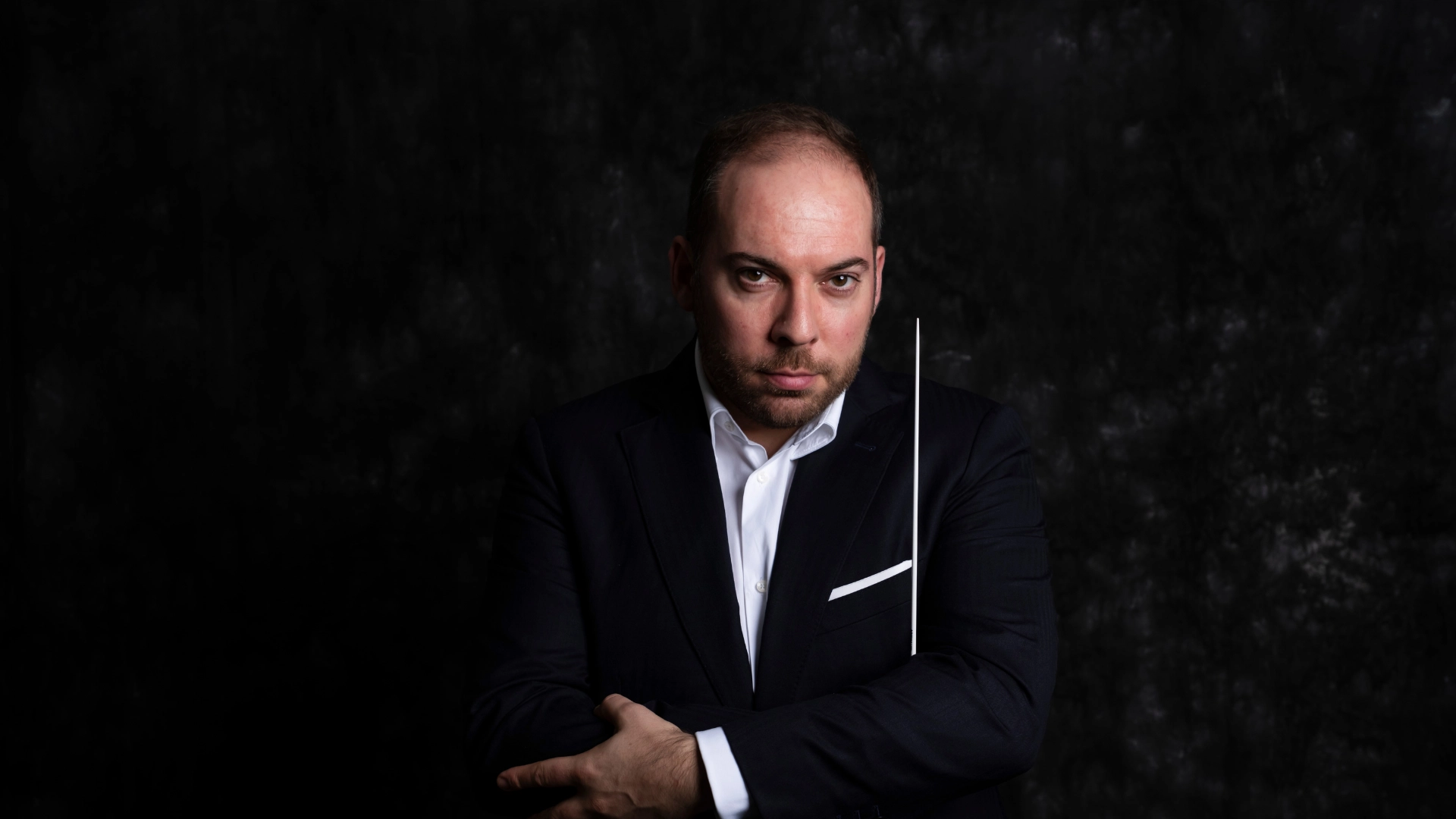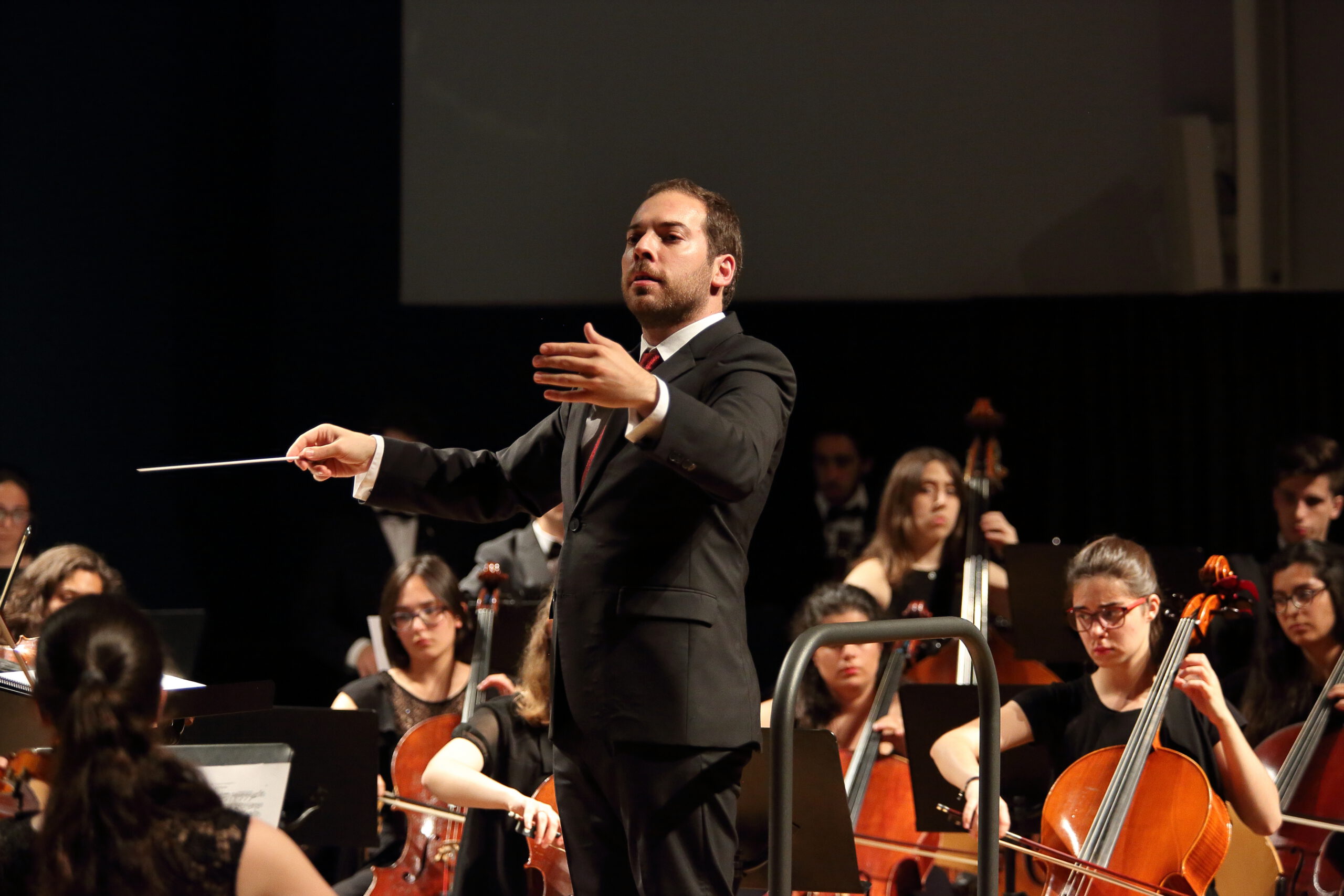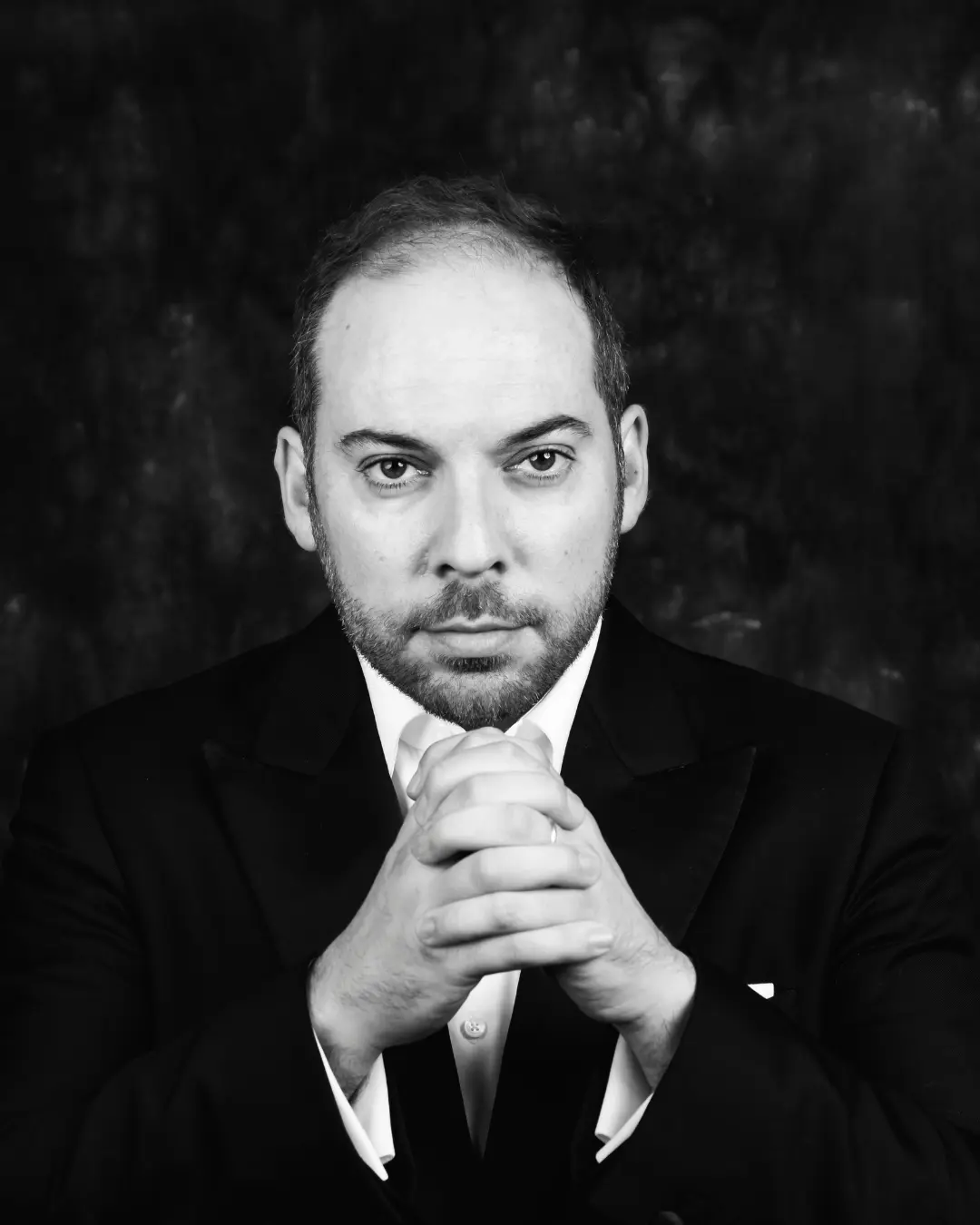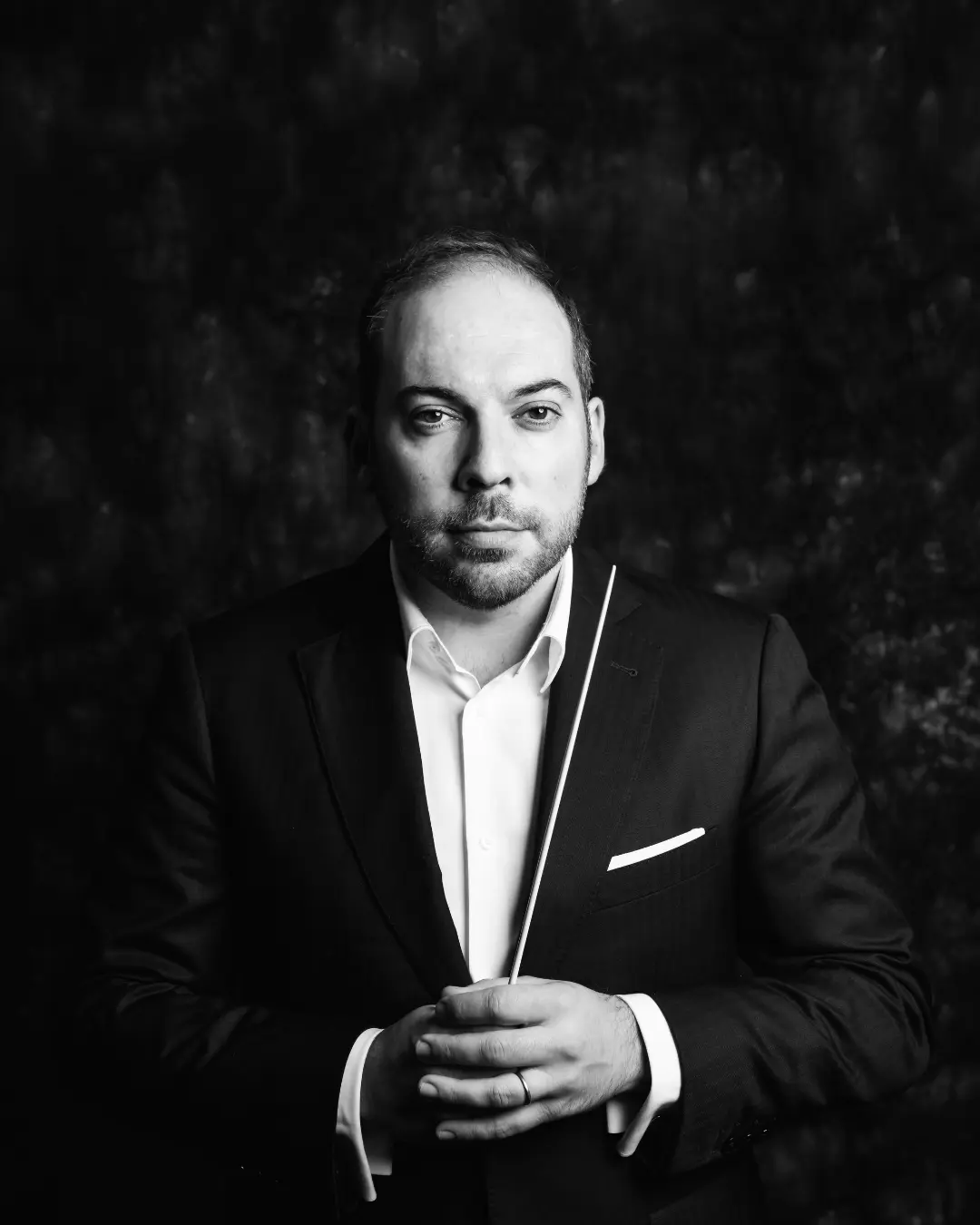
José Eduardo Gomes
Conductor
Biography
José Eduardo Gomes is part of the new generation of Portuguese conductors , considered one of the most promising.
In 2021, he replaced conductor Trevor Pinnock at short notice for a concert with Maria João Pires and the Gulbenkian Foundation Orchestra, which has since called on him very regularly.
JEG won First Prize and the prize for best performance of a Beethoven piece at the 2020 European Union Conducting Competition. These awards opened up opportunities for him abroad, notably with the Sanremo Symphony Orchestra in Italy, the MAV Symphony in Hungary and the Orchestre National de Cannes in France.
During the 2025–26 season, he will conduct the Portuguese Symphony Orchestra as part of the Teatro São Carlos season. He will continue his collaboration with the Gulbenkian Orchestra, the Orquestra Sinfónica do Porto Casa da Música, the Algarve Symphony Orchestra, and the Toy Ensemble for the creation of a new opera by Fernando Lapa.
He was principal conductor of the Orquestra Clássica do Centro (Coimbra – Portugal), associate conductor of the Orquestra Clássica do Sul (Faro), principal conductor of the Carouge Chamber Orchestra, Switzerland and principal conductor of the Circulo Portuense de Opera Choir (Oporto).
In recent years, he has been invited to collaborate with leading Portuguese ensembles such as the Gulbenkian Orchestra, the Orquestra Sinfónica do Porto Casa da Música, and the Portuguese Symphony Orchestra. He has conducted many distinguished soloists, including Carlos Ferreira, Diemut Poppen, Maria Elisabeth Lott, Sebastian Klinger, and Adriana Ferreira, and has appeared at some of the country’s most prominent festivals, such as Dias da Música, the Sintra Festival, the PJM Festival, the Cantabile Festival, the Festival das Artes, the Leiria Music Festival, FIMA, Música no Colégio, and the International Festival of Sacred Music of Guimarães.
At the Opera, he has directed several productions including: “Don Giovanni” and “Cosi Fan Tutte” by Mozart, Blimunda by A. Corghi, “La Donna di Genio Volubile” by Marcos de Portugal, “Lo Speziale” by Haydn, and more recently the Trilogias das Barcas/J.B. Santos.
Since 2019, José Eduardo has been the artistic director of JOF (Jovem Orquestra Famalicão), a young symphony orchestra, with some of the most prominent young Portuguese musicians.
José Eduardo Gomes studied clarinet in his hometown and continued his studies at ARTAVE and ESMAE – Porto, where he graduated in the class of Antonio Saiote. He studied orchestral conducting at the Geneva University of Music (Switzerland), with Laurent Gay, and choir conducting with Celso Antunes. A disciple of Jesus Lopez Cobos, he was an assistant to Peter Eötvös and attended masterclasses with Douglas Bostock, Jorma Panula, Peter Rundel, and Kazushi Ono.
José Eduardo is the founder of the clarinet ensemble Quarteto Vintage and Serenade Ensemble.
In 2018, he received the Medal of Cultural Merit from his hometown, V.N. Famalicão.
Management: Worldwide except Portugal




Press
Lisbon. National Theater of São Carlos. 14-XI-2022. Corgi: Blimunda. Dora Rodrigues, Julian Hubbard, Luis Rodrigues, Maroa Luísa de Freitas, Luis Madureira. Choir of the National Theater of São Carlos. Portuguese Symphony Orchestra. Musical direction: José Eduardo Gomes. Director: Nuno Carinhas.
The choir and the main orchestra of the old and historic São Carlos have shown qualities and qualities clearly superior to those of times gone by. The effective and careful musical direction of the young Portuguese maestro José Eduardo Gomes, who maintained the lively and ethereal acoustic pulse of an action faithful in substance and form to the careful and concise scenario, is not unrelated to this. A relevant success. Performers and an opera that clearly deserve more space and presence in the hackneyed contemporary lyrical universe. Happy centenary, dear Yosé Saramago!
Just Romero for Scherzo (Spain)
The National Theatre Choir, conducted by Giampaolo Vessella, and the orchestra under the direction of José Eduardo Gomes, responded brilliantly to the challenges of this complex score. The audience’s reaction at the end was quite enthusiastic, both due to the good performance of those who participated in the performance and the centenary celebration itself.
António ESTEREIRO, Lisbon correspondent for ÓPERA ACTUAL
